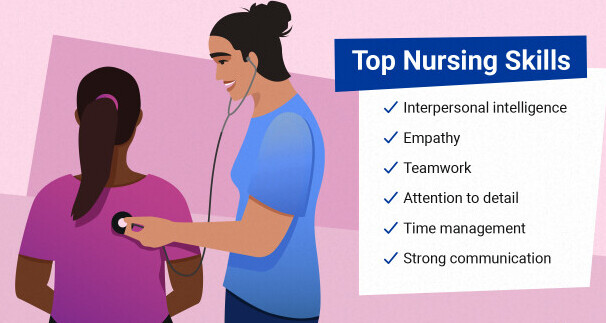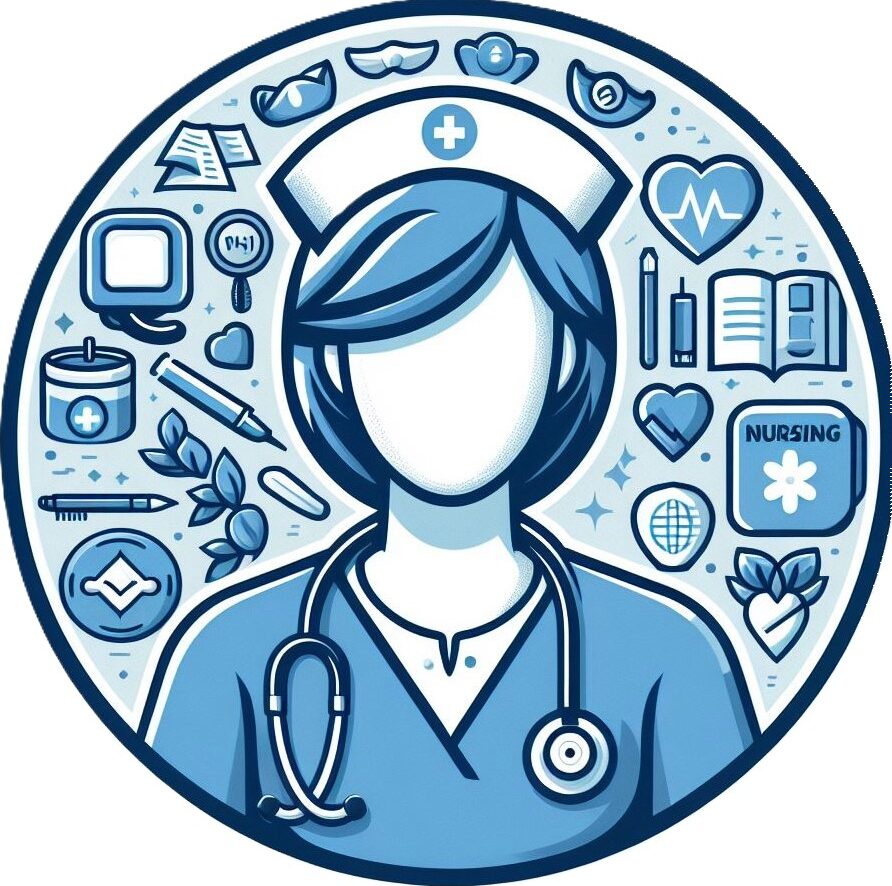 This article will present the top 10 Nursing Skills For Beginners To Master including:
This article will present the top 10 Nursing Skills For Beginners To Master including:
1. Patient Assessment
- Communication Skills
- Basic Life Support (BLS)
- Medication Administration
- Infection Control
- Time Management
- Critical Thinking
- Documentation Skills
- Basic Clinical Procedures
- Empathy and Compassion
Firstly, lets focus on Patient Assessment as the first essential skill must have as nurses. In the world of nursing, making sharp observations is crucial. Performing a thorough patient assessment isn’t only the backbone of effective care—it’s where it all begins. As nurses, you will need to get comfortable with measuring vital signs including heart rate, blood pressure, respiratory rate, Saturation level and temperature. These are the baseline indicators of a patient’s health.
This task also includes taking patient history skill. You need to listen attentively, ask the right questions, and put together a holistic view of the patient’s health journey. This history is a great insight that guide the care plan.
One of the most important skills here is performing physical exams. You’ll learn techniques to inspect, palpate, percuss, and auscultate. Those skills are all vital.
Therefore, never underestimate the power of a thoughtful initial assessment. It’s your key for planning patient care effectively. Once you’ve got these skills down, you’ll notice how everything falls into place more smoothly.
Effective Communication: Bridging the Gap
The second skill in nursing is effective communication. Clear communication in healthcare is a must-have skill. This is not only you are chatting with patients or discussing cases with colleagues, making yourself understood is crucial.
It is essential to acknowledge that every interaction with patients is a chance to build trust. It’s not only saying the right words, but also pay attention to non-verbal cues including body language and facial expressions are vital.
Another pivotal component in effective communication is teamwork. Working closely with different healthcare professionals means you need to master the art of collaboration. Sharing observations, hunches, and insights ensures every patient gets the care they deserve.
After all of that, documentation is a must. Being able to clearly document patient information and any care provided is key.
Therefore, don’t let different languages or cultural backgrounds prevent you from doing it effectively. Empower yourself by learning how to overcome these barriers to create meaningful connections with all your patients.
Core Clinical Competencies: Navigating Clinical Essentials
Thirdly, mastering the basics of Basic Life Support (BLS) isn’t optional; it’s your duty as a nurse. You’ll learn to handle emergency situations, from CPR techniques to using an AED effectively.
Fourthly, let’s talk about medication administration, precision is everything. You’ve got to know your dosage calculations and potential side effects. Getting this right is not only vital, but also literally lifesaving.
The next skill is infection control, it is all about the details. You’ll become best buddies with hand hygiene and personal protective equipment. These little things keep your patients and you safe.
Time management is the sixth master skill that is vital. Time management might sound like a soft skill, but in nursing, it’s essential. Prioritize tasks to stay on top of things, especially when the pace picks up.
What’s about critical thinking? It is your secret weapon. Assess situations quickly and make informed decisions that lead to effective problem-solving. Trust your training and instincts to guide you through tough calls.
Compassionate Care: The Heart of Nursing Practice
Empathy is a vital part of being a great nurse. Patients remember how you made them feel, as much as the care you gave. Your warmth and understanding can make all the difference in their experience.
While keeping your clinical skills sharp is essential, never lose sight of the human side of care. Maintaining accurate documentation supports this by allowing a holistic view of a patient’s journey and ensuring continuity of care.
Nursing doesn’t stop at the bedside. Basic clinical procedures such as inserting catheters or taking blood samples, are part of the everyday routine. Each procedure is a chance to show patients they’re in capable, caring hands.
Indeed, balancing the technical and emotional aspects of nursing isn’t easy, but it’s rewarding. Managing tasks while showing emotional intelligence ensures that patients feel cared for beyond their medical needs.
In conclusion, building rapport with patients creates trust. It’s what transforms care into healing. Make time for small gestures such as listening and empathy can create huge impact in patient care.
The above 10 Nursing Skills for novice nurses are vital, so embrace them, master them in your everyday patient care could leads to an optimum patient outcome.
